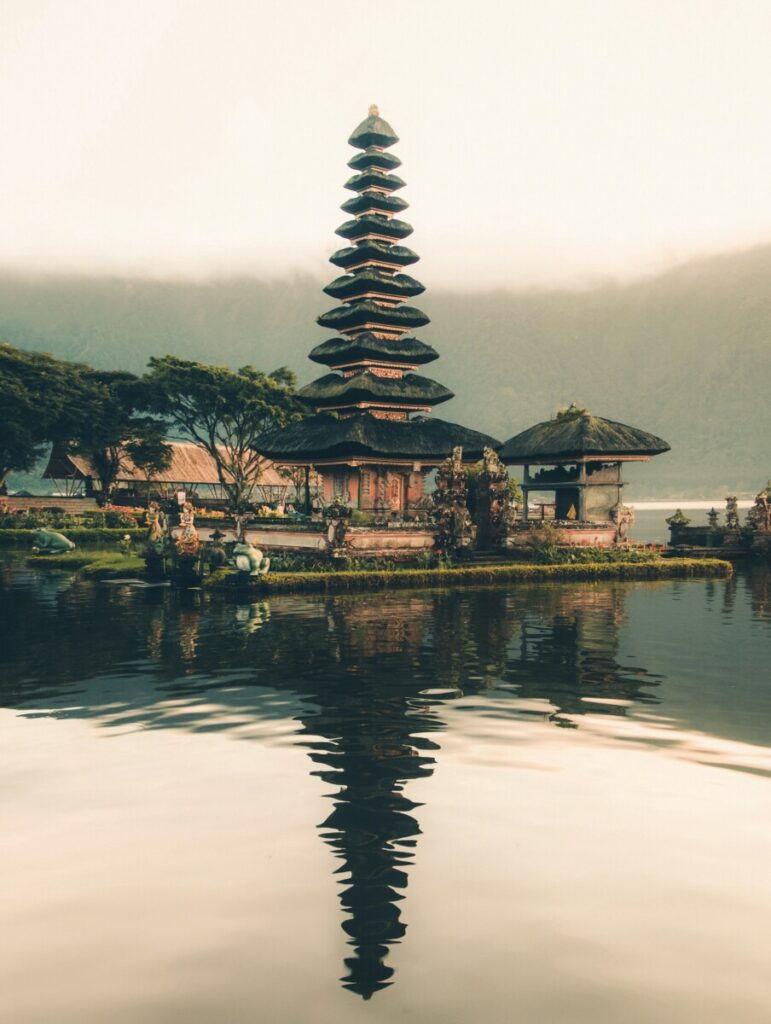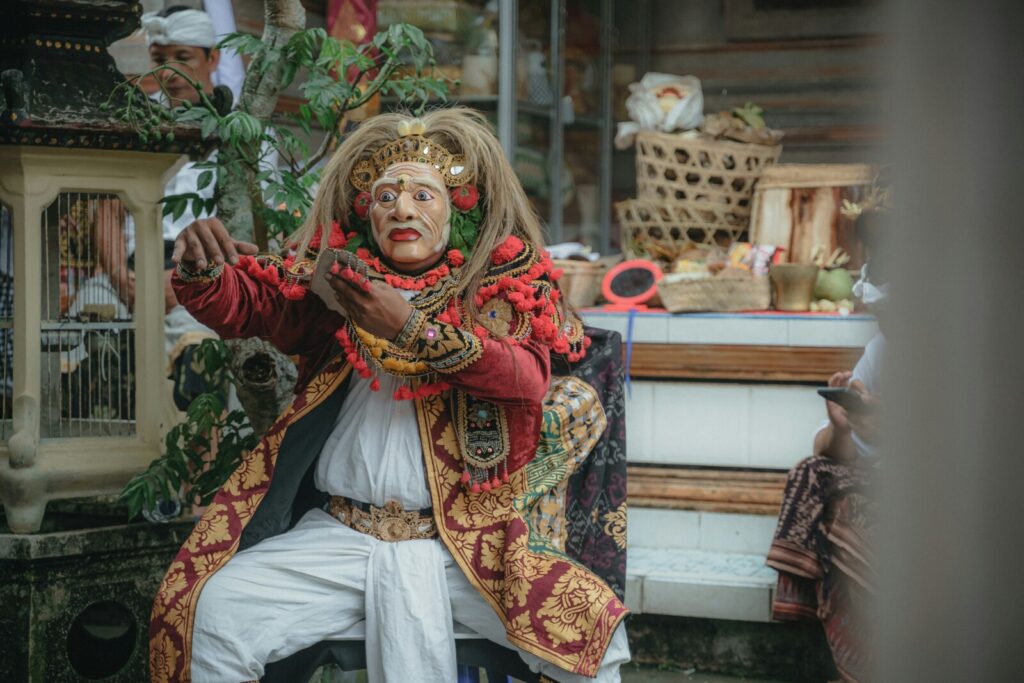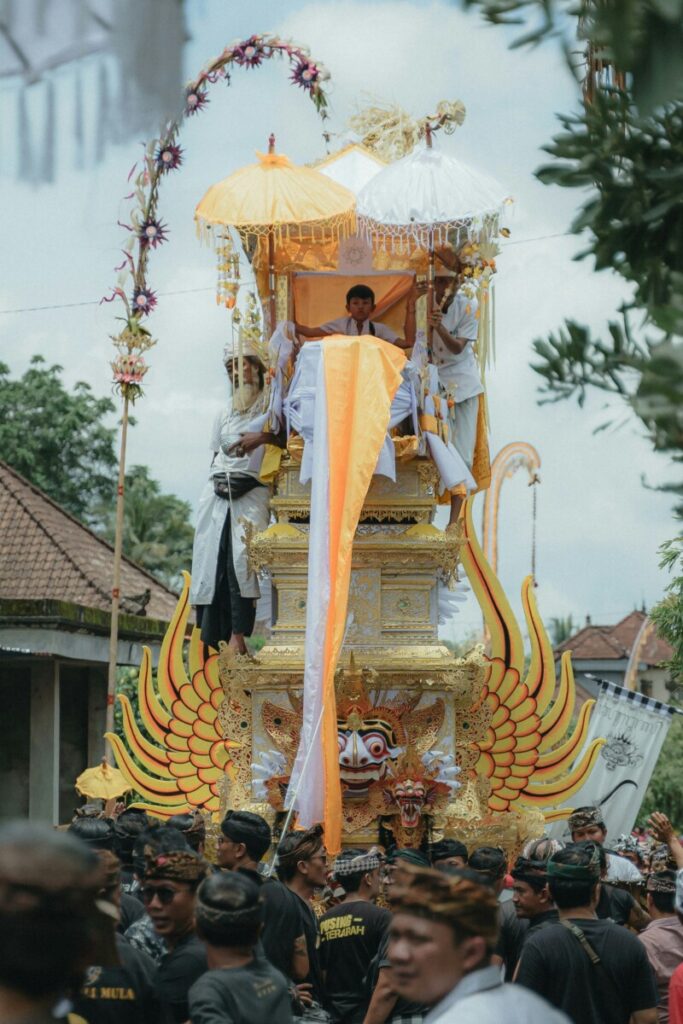Bali is an island and province of Indonesia, known for its rich culture and natural beauty. It is located in the heart of the Indonesian archipelago and features a great diversity of landscapes, including white sandy beaches, tropical jungles, terraced rice fields, and volcanoes.
In addition to its natural beauty, Bali is famous for its cultural and spiritual heritage. The majority of its population is Hindu, unlike the rest of Indonesia, which is predominantly Muslim. This is reflected in the numerous temples, festivals, and rituals that mark daily life on the island.

Today we will tell you how Balinese people celebrate weddings and how this Hindu influence is reflected in them. So, if you choose Bali as your volunteer destination, you will learn a bit more about their culture and how they celebrate.
Balinese weddings are full of symbolism and rituals that signify the union not only of two individuals but also of their families and the cosmos. While they can vary according to caste and region, most Balinese weddings follow a similar structure with rituals that reflect the cycle of life and the island’s spiritual beliefs.
STAGES OF A BALINESE WEDDING
- PURIFICATION RITUAL:
Before the wedding, both the bride and groom must undergo a purification ritual known as melukat. This ritual is essential to spiritually cleanse the couple of any impurities or negative karma and to ensure they are prepared to enter marriage with purity and blessings.
The term melukat comes from the Balinese word lukat, meaning to clean or purify. In the Balinese context, negative energies or spiritual impurities can accumulate over time due to negative actions or contact with undesirable energies, and melukat is performed to release them and restore harmony. It is carried out in sacred places, such as temples or holy springs. One of the most famous places for this ritual is Tirta Empul Temple near Ubud, where participants immerse themselves in sacred waters flowing from natural springs, though it can also be done in other sites with holy water.
The ritual begins with prayers offered to the Hindu gods, asking for permission and blessings before starting the purification. A priest or pemangku guides the prayers and may offer incense and small offerings, such as flowers and fruits, to invoke the gods and guardian spirits. After the prayers, the person being purified immerses themselves or bathes in the holy water, which is considered to have sacred and healing properties. The water flows from natural springs, believed in Balinese tradition to be charged with spiritual energy. The person follows a specific order, sometimes moving through several springs or waterfalls. In some cases, the priest sprinkles holy water on the participant’s head or pours water from a jug into their hands and head. Leaves, flowers, or rice may also be placed on the forehead as symbols of blessing and purification. During this process, mantras are recited, or prayers are chanted.
The ritual concludes with a prayer of gratitude and a final blessing. The priest may tie a sacred thread called benang tridatu around the participant’s wrist as a symbol of protection. This thread has three colors (red, white, and black), representing the three main Hindu deities (Brahma, Vishnu, and Shiva) and the trinity of balance in life.
- THE NGIDIH CEREMONY:
This is a key step in which the groom “asks for” the bride’s hand. Traditionally, the groom visits the bride’s home, accompanied by his family, to formalize the marriage proposal. This process may also include negotiating the bridal gifts or dowry.
The term ngidih in Balinese literally means “to ask,” reflecting the symbolic act of the groom requesting the bride’s hand and, with it, the permission to integrate her into his family. This ceremony not only focuses on the couple but also on both families, as in Balinese culture, marriage is seen as a union not only between two people but also between two family clans. The ceremony reflects mutual respect, social connection, and the commitment established between the families.
Before ngidih, both families must prepare, including organizing the necessary ritual offerings for the ceremony, such as flowers, fruits, sweets, and rice, which are placed on decorated trays. The groom’s family usually takes care of the main logistics. On the designated day, the groom, accompanied by his family and, in some cases, a priest, goes to the bride’s house. This visit symbolizes the formal act of asking for the bride’s hand. Traditionally, this step represents that the bride will be taken to the groom’s home, where she will integrate into his family and, in many cases, live with them. Once at the bride’s house, the groom’s family presents offerings to the bride’s family as a symbol of respect and gratitude. Then, the families engage in a formal dialogue where the representative of the groom’s family asks for the bride’s hand. This dialogue is respectful and symbolizes the acceptance of the responsibilities that marriage entails. The bride’s family symbolically accepts the proposal. The bride is then formally handed over to the groom, representing her transition from her parental home to her husband’s house, a key step in the Balinese marriage process. After the formal acceptance, prayers and blessings are offered, often led by a priest or spiritual leader, to ensure the marriage is blessed by the gods and ancestors. Offerings are made to the gods to ask for prosperity, happiness, and harmony for the new couple.
Once the ngidih ceremony is completed, the bride and groom are considered formally engaged, and the next phase is the wedding itself, which may include more religious rituals at the groom’s family temple and community celebrations.
- CEREMONY AT THE FAMILY TEMPLE:
The wedding takes place at the sanggah or family temple, where offerings are made to the gods and ancestors. Priests or pemangku lead a series of rituals, including prayers and the presentation of offerings to bless the couple. During the ceremony, symbolic gestures are performed, such as tying the couple’s fingers or walking around the altar, which represents their commitment and unity.
Traditional offerings called canang sari and other symbolic elements like flowers, rice, and coins are used to represent blessings from nature, wealth, and fertility. These offerings are made not only to bless the newlyweds but also to ask for protection and prosperity.

WHAT DETAILS DO BALINESE WEDDINGS INCLUDE?
The attire of the couple is one of the most striking elements of a Balinese wedding. The bride and groom usually wear elaborate traditional outfits full of bright colors and golden decorations. The bride often wears a dress that includes a silk sarong, a golden headdress adorned with fresh flowers, and eye-catching jewelry. The groom also wears a sarong, along with a headdress that symbolizes power and responsibility.
A Balinese wedding is a community celebration, with the participation of family, friends, and neighbors. After the religious ceremony, a banquet is held in honor of the couple, which may include traditional Balinese dances and gamelan music. The atmosphere is one of celebration and unity, not only between the couple but also between their families and the community.
Some of the most common dishes are:
- Babi Guling (Roast Pork): This is one of Bali’s most iconic dishes, where a whole pig is slowly roasted and seasoned with a mix of local herbs and spices.
- Ayam Betutu: A dish of chicken or duck slowly cooked with a blend of typical Balinese spices, such as turmeric, ginger, and shallots. The bird is cooked for hours until the meat falls apart.
- Lawar: A Balinese salad made with a mixture of minced meat, grated coconut, spices, and sometimes pig or chicken blood. There are different versions, such as green or red lawar, depending on the ingredients.
- Nasi Kuning: Yellow rice cooked in coconut milk and turmeric, giving it a vibrant color. It is a symbol of prosperity and good luck and is served during festive occasions.
Among many other dishes.

In summary, a Balinese wedding is a celebration rich in symbolism, beauty, and spirituality, which not only reflects the union of two people but also the interweaving of their families with the cosmos and the community. Experiencing or witnessing one is an unforgettable experience.




